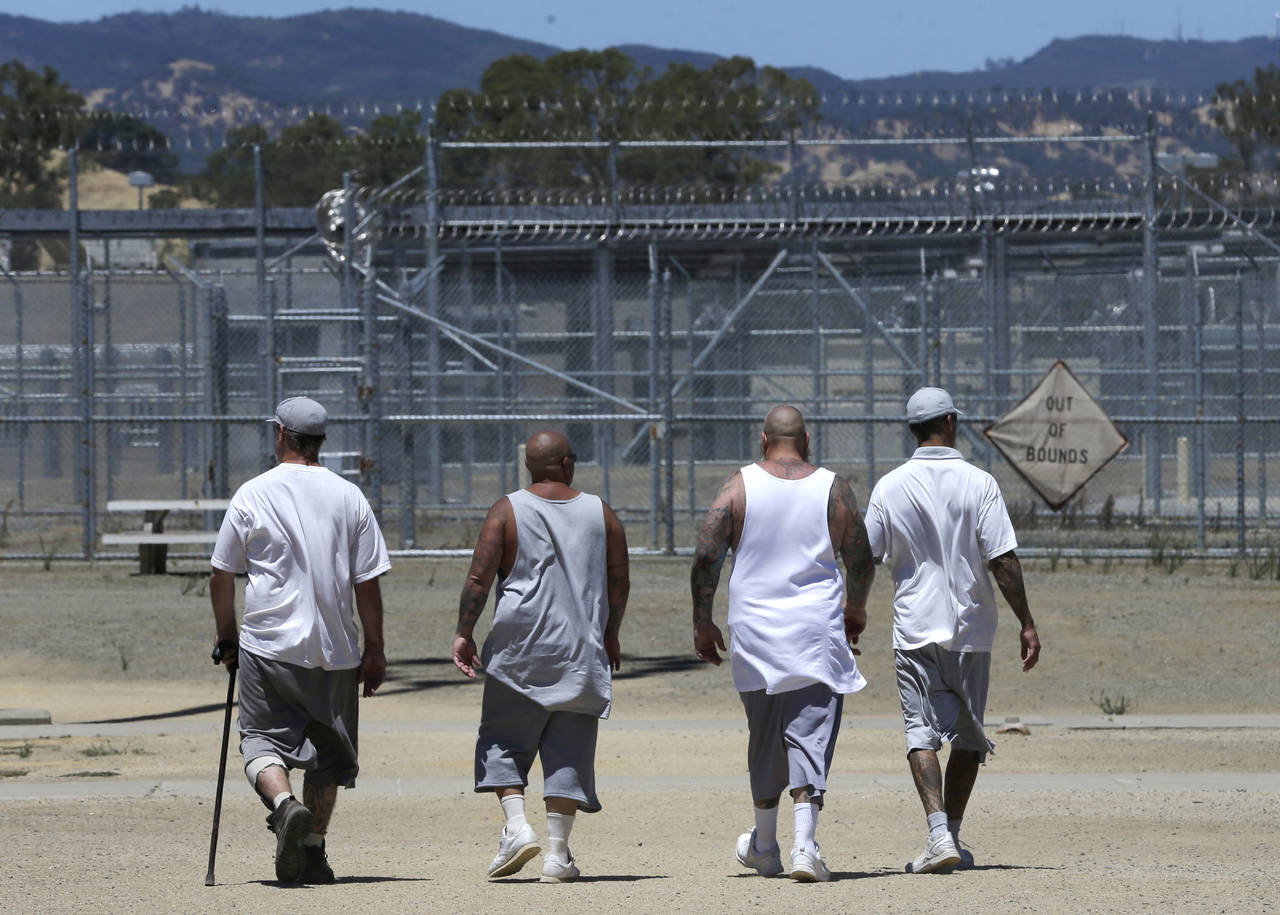California may allow more ill, dying inmates to leave prison
Aug 25, 2022, 1:25 AM | Updated: 4:26 pm

FILE - Inmates walk the exercise yard at the California Medical Facility in Vacaville, Calif., June 20, 2018. California would allow more ill and dying inmates to be released from state prisons under legislation that cleared the state Senate and heads to the Assembly for final approval. (AP Photo/Rich Pedroncelli, File)
(AP Photo/Rich Pedroncelli, File)
SACRAMENTO, Calif. (AP) — California would allow more ill and dying inmates to be released from state prisons under legislation that cleared the state Senate without opposition on Thursday and heads to the Assembly for final approval.
It would ease the current standard, which critics say is so restrictive that it keeps inmates locked up who are too sick to be dangerous. That not only fills prison beds unnecessarily, they say, but is costly because the inmates often require the most expensive and intensive care.
Ninety-one California inmates died while they were awaiting compassionate release between January 2015 and April 2021, according to the nonprofit advocacy group Families Against Mandatory Minimums (FAMM) — nearly a third of those who were waiting. During that time, 304 inmates sought compassionate release, but just 53 were released through the courts.
“Unfortunately, due to flaws in the current system, too few people are being released and far too many are dying before the process is completed,” the group said in a recent report.
The new threshold would allow inmates to be freed if they are permanently medically incapacitated, or have a serious and advanced illness “with an end-of-life trajectory,” the standard used by the federal prison system.
It would also also create a presumption that a qualified inmate should be released, unless a judge finds an unreasonable risk to public safety.
By contrast, current law requires inmates to be terminally ill or permanently medically incapacitated, with strict definitions. The illness currently must be expected to be fatal within 12 months. And permanent incapacity is defined as meaning that an inmate requires medical care around the clock.
The bill would remove the 24-hour-care requirement, instead making inmates eligible if they cannot complete activities of daily living. It would also allow them to be freed if they have progressive dementia or another cognitive impairment.
California also currently requires a recommendation from the corrections department’s secretary, the highest ranking prison official, who rejected 25% of all applications, according to FAMM’s data. The bill would instead require lower-level employees to recommend an inmate be released if they meet the new threshold.
“California’s current policy is too narrow, and the process is lengthy and redundant, unnecessarily saddling the state with high medical costs,” Democratic Assemblyman Phil Ting said after the Senate supported his bill. “We can do better.”
The California Narcotic Officers’ Association said in opposition that there is no need for “drastic changes in what is a well-crafted document.” The California District Attorneys Association similarly said that current standards “already provide for truly ill inmates to be paroled or resentenced.”
But FAMM’s general counsel, Mary Price, said in a statement that “the state cannot afford to waste its limited resources incarcerating seriously and terminally ill people who pose no threat to public safety.”
An earlier version of the bill cleared the Assembly last year on a 45-24 vote, with some membrs of both political parties opposed or not voting.
California’s policy became more restrictive last year when officials began limiting medical parole to inmates so ill they are hooked to ventilators to breathe, meaning their movement is so limited they are not a public danger. They said they had no choice under a change in federal rules.
The National Conference of State Legislatures said in a 2018 review that nearly every state has a process for releasing inmates with serious medical conditions, but they are rarely used. The Vera Institute of Justice, a national nonprofit research and advocacy group, separately cited limited eligibility and barriers to applying for release.
Copyright © The Associated Press. All rights reserved. This material may not be published, broadcast, rewritten or redistributed.












